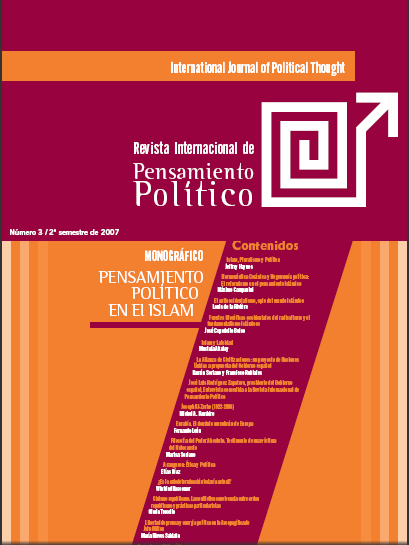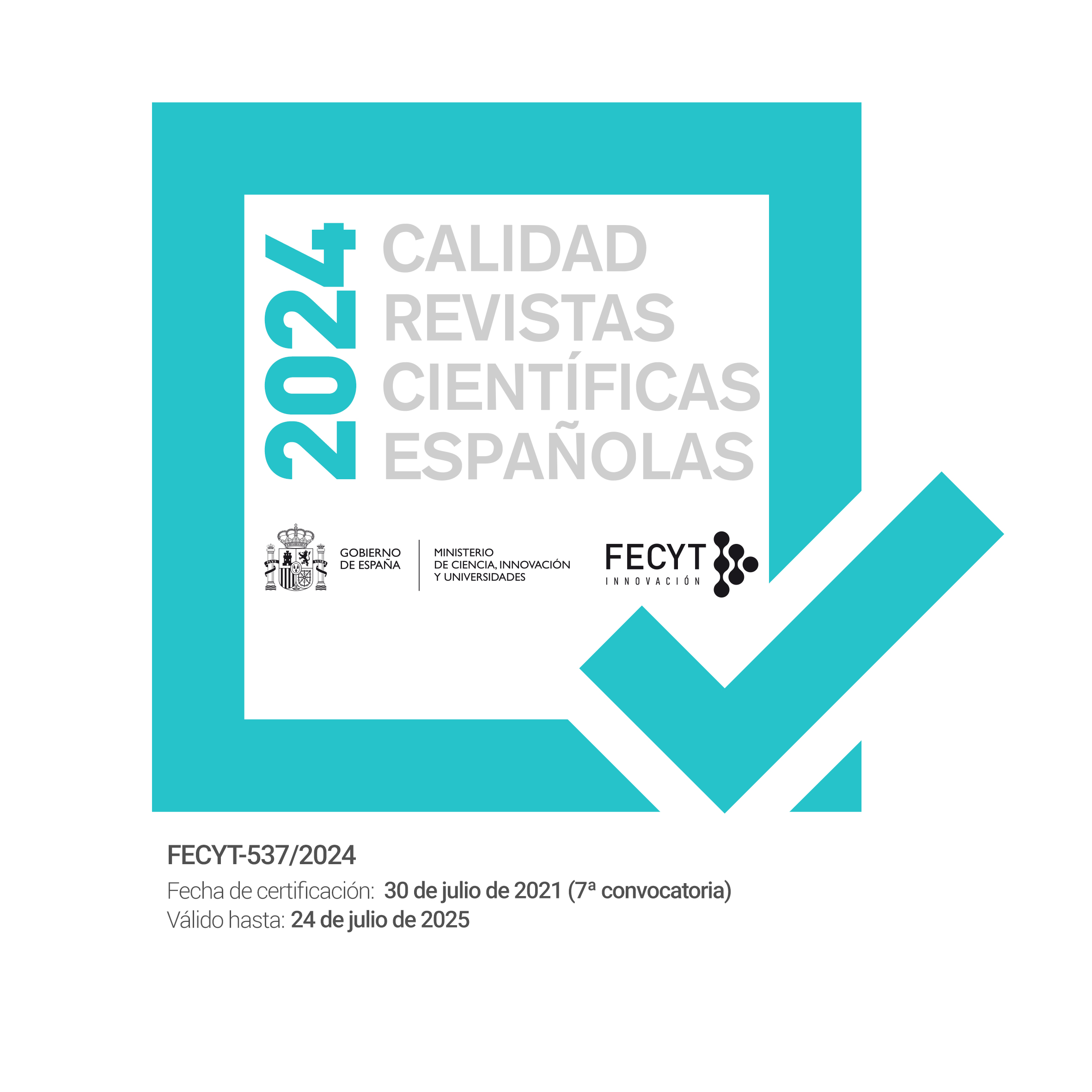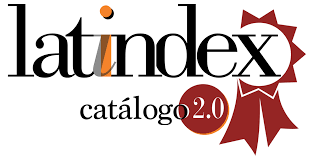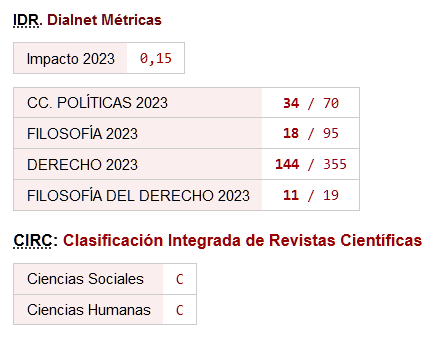Islam y Laicidad
Keywords:
Laicismo, musulmanes europeos, legitimación institucional, Laicism, European muslims, institutional legitimationAbstract
El Laicismo en el Islam ha separado a musulmanes sunníes y shíies, a los fundamentalistas de los liberales desde hace más de una centuria, como se ha evidenciado en etiquetas como ladiniya e ilmaniya. Intelectuales marroquíes de izquierda se han adentrado periódicamente en este debate. Pero mientras los europeos tienden a entender este conflicto en las comunidades musulmanas como una confrontación entre laicismo y teocracia, en el seno de estas comunidades el problema es entendido como el conflicto de tradición versus modernidad. En realidad, el laicismo es una invención religiosa que muchos pensadores creen compatible con principios islámicos. La comunidad musulmana española está compuesta de pueblos de muy diferentes países, donde el Islam es la única religión, y para ellos el nuevo contexto europeo está generando nuevas vías para vivir su fe religiosa. Después del 11-M, sin embargo, algunos columnistas de prensa y escritores españoles han decidido estigmatizar al Islam, y muchos problemas sociales y económicos son interpretados como culturales o religiosos. España tiene un importante rol que desarrollar en este debate.
------------------------------------------------------------------
Laicism in Islam has divided Sunni Muslims from Shiites and fundamentalists from liberals for more than a century, as evidenced in labels such as ladiniya, ilmaniya. Moroccan leftist intellectuals have periodically entered the dabate. But, while europeans tend to understand conflicts within european muslim communities as a confrontation between laicism and teocracy, within those communities the problem is understood as that of tradition vs. modernity. In fact, laicism is a religious invention that many thinkers deem compatible with Islamic principles. The Spanish Muslim community is composed by people from many different countries where Islam is the only religion, and their new European context is generating new ways of living their religious faith. After 11-M, however, some spanish journalists and writers have taken to stigmatize Islam, and many social and economic problems are interpreted as cultural or religious ones. Spain has an important role to play in the debate.
Downloads
Downloads
Published
How to Cite
Issue
Section
License
Open access policy
Free and open access is allowed to any interested party to all the contents of the journal issues, free of charge, being able to print and transfer all the articles, with the only condition of specifying the source and authorship.
The journal: a) does not charge authorship costs for the processing of articles or for their submission, b) maintains copyright for authors without restrictions, c) facilitates authors to keep their publication rights without limitations.
The International Journal of Political Thought is an original work of the Laboratory of Political Ideas and Practices of the Pablo de Olavide University. All articles included in the Journal are original work of their respective authors. This Journal is freely offered to the scientific and academic community at no cost and releases the contents according to the license "Attribution-NonCommercial-ShareAlike 4.0 CC BY-NC-SA" of the Creative Commons project available in the following url: https://creativecommons.org/licenses/by-nc-sa/4.0/legalcode
If you wish to translate or compile any of the articles available here, please contact us at contacto













 ISSN: 1885-589X
ISSN: 1885-589X  Universidad Pablo de Olavide
Universidad Pablo de Olavide